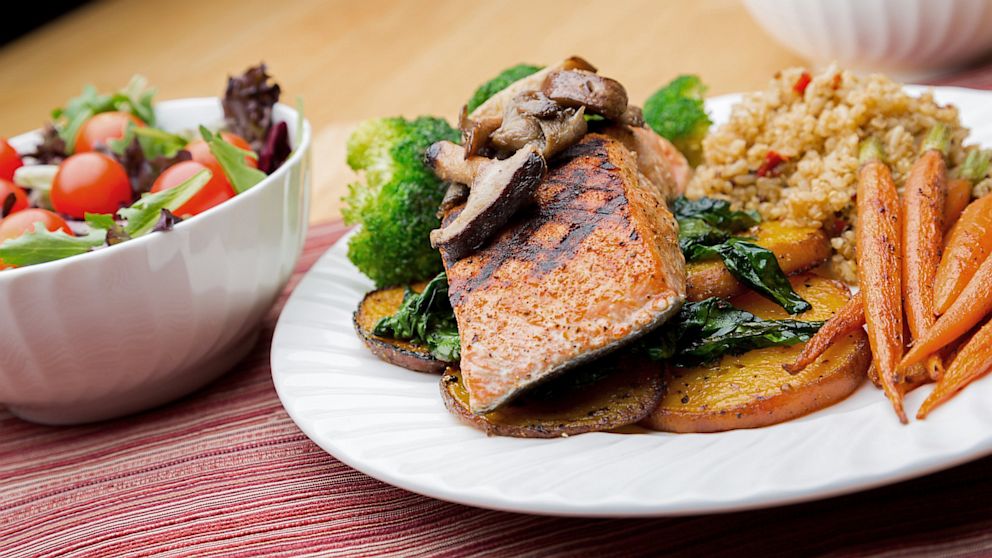Healthy Diet May Cut Pancreatic Cancer Risk
A healthy diet may cut your pancreatic cancer risk by 15 percent.

Aug. 16, 2013 — -- Pancreatic cancer is among the deadliest cancers -- the fourth leading cause of cancer death in America.
The struggles of high-profile celebrities diagnosed with this disease -- Patrick Swayze and Steve Jobs among them -- have made everyone aware of the uphill battle that these patients face.
The conventional wisdom is that there's not much anyone can do because pancreatic cancer has few early warning signs and doctors can't do much to detect the disease early.
But a new study is offering some hope: There may be a way to cut your risk of ever getting pancreatic cancer by 15 percent. It starts on your dinner plate.
For more on pancreatic cancer, visit our topic page.
In a study released Thursday in the Journal of the National Cancer Institute, researchers at the National Institutes of Health showed that people who simply adhere to a healthy diet -- specifically, the federal government's dietary guidelines for Americans -- cut their risk of pancreatic cancer by 15 percent.
The study looked at more than half a million people aged 50 to 71 and surveyed them to find out their dietary habits. Over the course of about a decade, the people who ate a diet with a high healthy eating index (HEI, a standard measure for how closely a person's diet resembles the government's guidelines) were less likely to be diagnosed with pancreatic cancer.
The lower risk was even more pronounced when the person was obese -- a finding that may give an additional incentive for those with weight issues to eat healthy.
Hannah Arem, one of the researchers behind the new study, said the team got interested in a link between diet and pancreatic cancer diagnosis because poor nutrition is a known risk factor for other cancers. She noted that finding about those who are obese -- a group that includes more than a third of American adults.
"Obesity is a known risk factor for pancreatic cancer," Arem said. "Overweight or obese men who reported a diet more in line with the dietary guidelines had a lower risk of pancreatic cancer compared to their normal weight counterparts."
Why? Arem said further research is needed.
The study did not identify a particular unhealthy food or pattern that might cause pancreatic cancer, or suggest that one particular healthy food protects against it. Instead, it took a broad approach and suggested that an overall healthy diet -- one that consists of dark green and orange vegetables, legumes, whole grains, healthy oils and milk products -- has an effect on the risk.
Dr. Bernard Levin, a cancer prevention expert not involved with the study, said its findings were important.
"Pancreatic cancer is a very lethal disease, and any studies to prevent it are important," said Levin, professor emeritus at MD Anderson Cancer Center in Houston. "Diabetes, tobacco and obesity are known risk factors, [but] the issue of diet is more complicated."
Doctor's Take
The message of this study and others like it is that, in the battle to fight cancer, sometimes the best ally isn't medicine, it's prevention. While it is true that doctors are gaining greater understanding of how to treat this and other deadly cancers, avoiding some of the habits and lifestyles that can cause cancer is something anyone can do. And you can start anytime.
It's hard to say whether it's the healthy diet that has a direct effect on pancreatic cancer risk, or if it's linked to a healthier weight, lower diabetes risk and avoidance of tobacco.
Either way, it is clear that minding what goes on your plate has implications that reach far beyond your waistline.